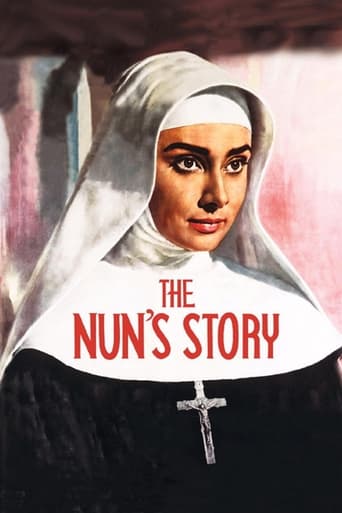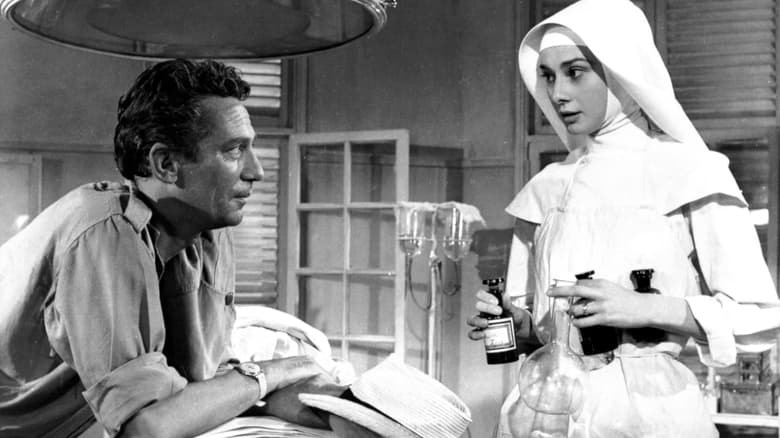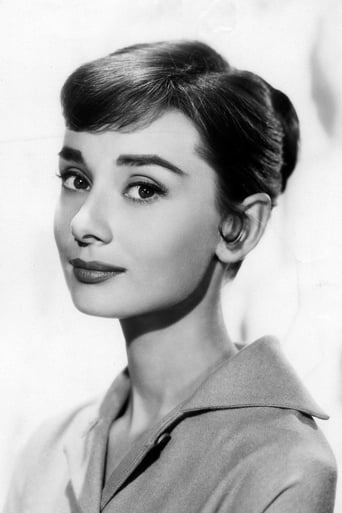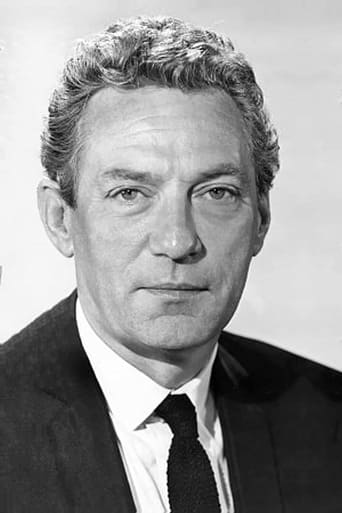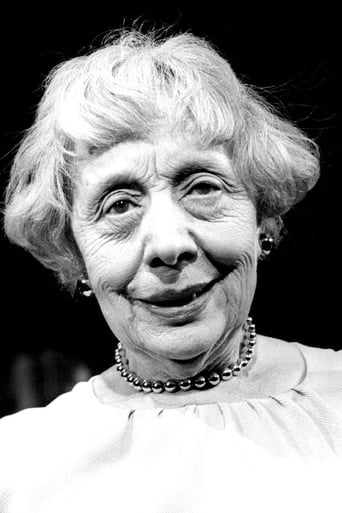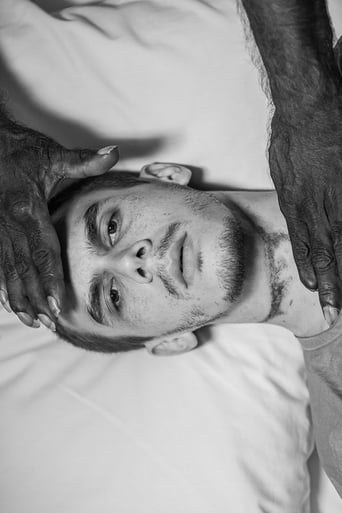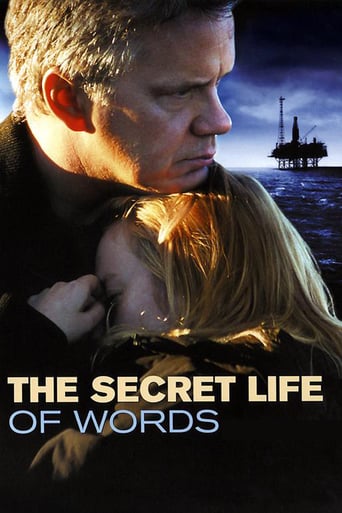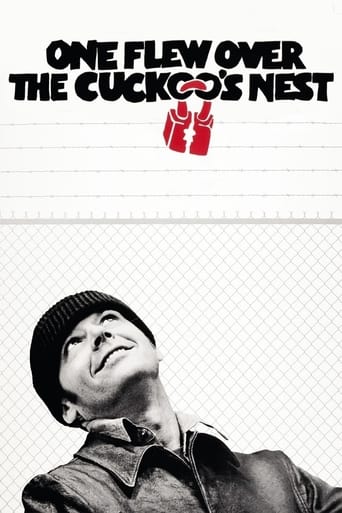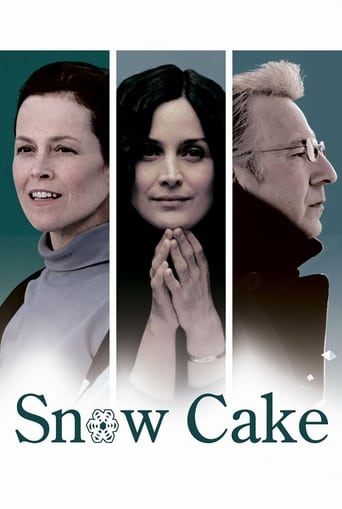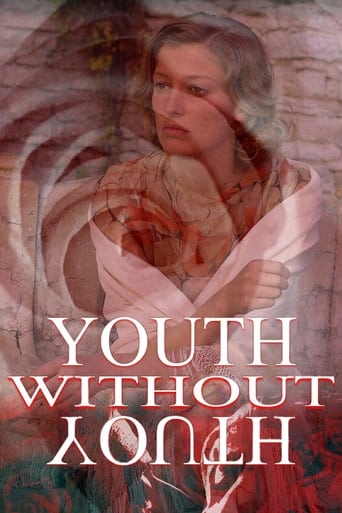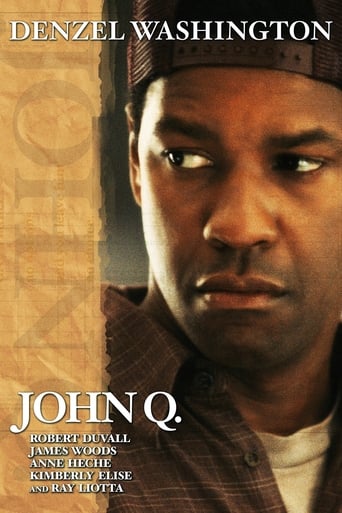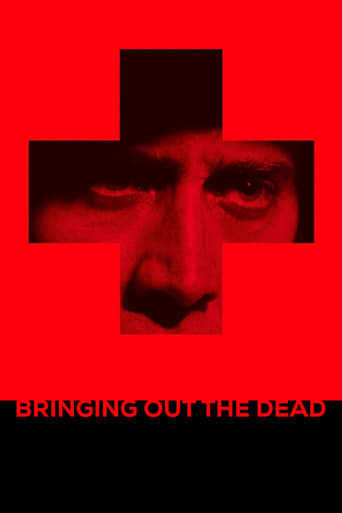The Nun's Story (1959)
After leaving a wealthy Belgian family to become a nun, Sister Luke struggles with her devotion to her vows during crisis, disappointment, and World War II.
Watch Trailer
Free Trial Channels
Cast


Similar titles
Reviews
Lack of good storyline.
Highly Overrated But Still Good
There's a more than satisfactory amount of boom-boom in the movie's trim running time.
Through painfully honest and emotional moments, the movie becomes irresistibly relatable
Around 1930 in Belgium, Gabrielle Van Der Mal (Audrey Hepburn) leaves her wealthy family to join the convent. Her surgeon father tries to dissuade her but she aims to be a healer in the Congo. She is given the name Sister Luke as she faces the challenges of her faith in the real world. Her nemesis is her pride. First, she's denied the Congo but eventually, she is assigned there to work under Dr. Fortunati (Peter Finch).Based upon the life of Marie Louise Habets, it was nominated for 8 Oscars winning none. It is certainly detailed in its portrayal of a nun's life. It's the film debut of Colleen Dewhurst in a minor role. Each part is interesting but the movie needs a driving force through the entire story. That is supposed to be her pride but it comes and goes at times. That idea needs some repetitive clarity as a lens to focus her character development. It is sometimes colored with a suggested love story with Fortunati. Her obsession with the Congo needs to be given voice. It would be great if she actually says out loud that she is better than the other nuns. Her struggles with her obedience is generally good. The most compelling scene is the leper colony with real lepers. The Nazi occupation could have been more dramatic although this movie treats it more as an interior struggle. It stops her story short. I understand the concept of stopping at that point but I need to see her life afterwards.
Years ago, before the CD era, I bought the soundtrack record of "The Nun's Story" by Franz Waxman. One of the best of the old school film composers, Waxman outdid himself with this score - at once intimate and soaring. The grooves are well worn now, but it's still a favourite.The music was just one of the beautifully crafted elements that made "The Nun's Story" such an extraordinary experience.You don't have to be Catholic to feel the power of this film about Sister Luke (Audrey Hepburn), a nun just before WW2 who desires to help others in a troubled world despite inner struggles with her faith. She belongs to an austere order that abhors the sin of vanity above all others. An interesting concept these days when you'd be forgiven for thinking it had actually become a virtue.Fred Zinnemann was a classy filmmaker who believed in filming in real locations, Belgium and the Belgian Congo in this case. The film also has a tremendous sense of spirituality with fascinating sequences of convent and church ritual.Although the crisis of faith suffered by Audrey Hepburn's character forces her out of the order, the sense of people living life on a higher plane comes through with denial of self and service to others their driving motivation.Audrey Hepburn lives and breathes Sister Luke. She looks stunning in her various nuns' habits; clothing it must be said that is designed to do anything but flatter female beauty. She was one of the most radiant stars ever and this is her most luminous role. It was her personal favourite among her movies, and isn't it good to learn that she was such a nice person, considerate to her fellow actors and the crew; just a charmer with everyone. Peter Finch, another star with presence, nails his role as the challenging Doctor Fortunati.I always thought the story was true, but now know that although it is a work of fiction, it was based on the life a woman who did experience the things depicted in the film."The Nun's Story" has a number of scenes that leave a lump in the throat: Sister Luke on the train leaving the Congo, and that deafening silence as she walks away from the convent finally broken by a couple of notes of Waxman's inspired score and the tolling of a bell.The film came out decades before we became aware that some in the clergy had betrayed their positions of trust. One may be tempted to view "The Nun's Story" a little more cynically these days, but I think it simply shows the other side of the coin; those unpublicised members of the church who guided by faith quietly spend their lives helping others.
Belgium, 1930. Audrey Hepburn, daughter of a famous surgeon (Jagger), joins a convent, undergoes a rigorous training in humiliation, becomes a star pupil at the school for tropical medicine, is sent to what was then called the Belgian Congo where she becomes an indispensable surgical assistant, has an emotional but strictly Platonic brush with the demanding and non-believing doctor (Finch), is sent back to Belgium against her wishes, and resigns from the order.Several scenes seemed especially instructive. First, the whole business of going through boot camp at the nunnery was an excellent example of initiation rituals as they're found around the world. I won't go into details but being given a new name is a common feature of these rites of passage. Gabrielle van der Mal becomes Sister Luke. In our society we have confirmation names, Hebrew names, and nicknames given during service in the Marine Corps.Second, Hepburn is doing first rate work at the school for tropical medicine. She's intelligent, a nurse, and the daughter of a surgeon. But she's breaking some of the rules as well. She doesn't show enough HUMILIATION, so her superior asks her to fail the final exam as evidence that she's rid herself of the sin of false pride. Let's put it this way -- she's supposed to deprive the community of a skilled nurse with a specialty in tropical medicine to prove her subordination to the church.As capitalism developed, is it any wonder that Reformed Churches arose? The sociologist Max Weber made a convincing argument that it was the overthrow of Catholicism, with its vows of poverty and its denunciation of usury, that made capitalism possible. Not that one cause the other, but that they were concordant in their values. If Catholicism taught that being poor was a virtue, Protestantism taught that industry, thrift, and community work was in the service of God.That's a short and incomplete description of my point but please don't argue with me about it. I know what I'm talking about. I've been poor all my life.This is an exceptional movie in many ways. Audrey Hepburn is quite good as Sister Luke. She was always beautiful in a fey way, never sexy, and it fits the role perfectly because you hardly see anything except her facial features, and they're very expressive. She does a fine job.Peter Finch is good too but it's a common role -- the roguish male who challenges the suppressed female to come out of her shell. Viz., Cary Grant and Joan Fontaine in "Suspicion." Franz Waxman's score is carefully done. In a scene in which an almost unrecognizably young Coleen Dewhurst, as a madwoman, attacks Hepburn, the score is anything but bombastic, only plucked strings. Elsewhere the score is modest and appropriate to the occasion. We hear "ora pro nobis" which, when I was a kid at mass, I always heard as "O, Ropra, No Bis," because, not having had Latin, I couldn't identify junctures.Something has to be said about the cast too. What a lot of winners, including Dame Peggy Ashcroft who went from the wife of the suspicious farmer in "The 39 Steps" to the elderly Mrs. Moore in David Lean's "A Passage to India." And the art direction and set dressing. Nothing was every so clean as the nunnery through which Hepburn passes. Every surface is polished, immaculate, so to speak. Every piece of cloth is spotless and freshly pressed. The barracks in MY boot camp were never so clean.Aside from its rather obvious display of the cultish aspects of belonging to an order, it's a fine film, very tastefully directed by Fred Zinnemann -- so tasteful in fact that it's almost impossible to imagine its being made in today's Hollywood.
In 1930, in Belgium, Gabrielle van der Mal (Audrey Hepburn) is the stubborn daughter of the prominent surgeon Dr. Pascin Van Der Mal (Dean Jagger) that decides to leave her the upper-class family to enter to a convent, expecting to work in Congo with tropical diseases. She says good-bye to her sisters Louise and Marie; to her brother Pierre; and to her beloved father, and subjects herself to the stringent rules of the retrograde institution, including interior silent and excessive humbleness and humiliation. After a long period working in a mental institution, Gaby is finally assigned to go to Congo, where she works with the Atheist and cynical, but brilliant, Dr. Fortunati (Peter Finch). Sister Luke proves to be very efficient nurse and assistant, and Dr. Fortunati miraculous heals her tuberculosis. Years later, she is ordered to return to Belgium and when her motherland is invaded by the Germans, she learns that her beloved father was murdered by the enemy while he was helping wounded members of the resistance. Sister Luke finally decides to leave the religious life since she is not able to feel neutral against the invaders of her country. "The Nun's Story" is a great film that tells the story of a young woman that decides to enter in a convent accepting all sort of humiliation in the retrograde institution. It is impressive the non-sense attitudes that the novice is submitted, including self-infliction of whipping, absurd silence, fail in an examination and be repressed for an excel work in the hypocrite name of humbleness. This is not vocation but abnormal brainwash of sick persons in the name of the faith. Audrey Hepburn is magnificent, as usual, and this film was nominated to 8 Oscars, 13 wins and 12 other nominations. My vote is eight.Title (Brazil): "Uma Cruz à Beira do Abismo" ("A Cross in the Edge of the Abyss")

